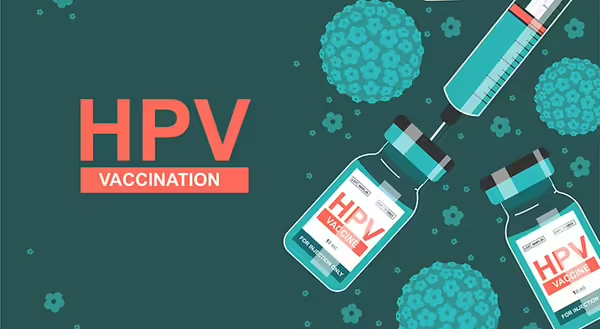
Many people have heard of the HPV vaccine or have been vaccinated, but may not know what it does and why it is important. Parents and adults can make informed decisions about their health by learning about this essential vaccine.
What is HPV?
HPV stands for Human Papillomavirus, a common virus that spreads through skin-to-skin contact. Most people will have HPV sometime in their lifetime and won’t know it. Luckily, our bodies clear out the virus on their own in most cases. Some HPV types, however, can cause several cancers and genital warts. Cancers can include cervical, throat, and anal among others. Each year, HPV causes 36,000 cases of cancer among men and women in the United States. The good news is that a vaccine to protect against HPV is available to the public.
Who is the HPV Vaccine for?
A common misbelief is the vaccine is only for teen girls; however, the vaccine is recommended for everyone and can be given from the ages of 9-45. The ideal recommended age to begin the dosage set is 11-12 years of age.
How does the HPV vaccine work?
This safe vaccine has a simulation of the Human papilloma virus, or a “fake version” that will signal the immune system to produce antibodies that will fight off the real virus if exposed in the future to prevent infection. The vaccine is recommended to be given earlier in life because it only protects you from future HPV strains if you are vaccinated before becoming infected. This vaccine is effective in preventing up to 90% of cancers caused by HPV. The Centers for Disease Control and Prevention estimated that since the release of the HPV vaccine in 2006:
- Among teen girls, infections with HPV types that cause most HPV cancers and genital warts have dropped 88%
- Among young adult women, infections with HPV types that cause most HPV cancers and genital warts have dropped 81%.
- Among vaccinated women, the percentage of cervical pre-cancers caused by the HPV types most often linked to cervical cancer has dropped by 40%
What can you do?
If you are a parent or caregiver, ask your family’s pediatrician for more information on how to protect your children from HPV.
If you are an adult and interested in learning if the HPV vaccine is right for you, contact your doctor. You can also visit the CDC website for more information.
Sources
About the author
Monserrat Carrillo-Rodriguez is a social and community health specialist. The Integrated Health Disparities program tackles health issues with an integrated lens of physical, mental, and community health, providing programs and resources to address health inequities. She has experience working with diverse audiences both in Chicago and Champaign focused on disease prevention and health education. Monserrat is a two-time graduate of the University of Illinois, earning a bachelor’s degree in community health in 2020 and a master’s degree in public health in 2021. She works to reduce the burden of health disparities among vulnerable populations through evidence-based health behavior interventions and health education.